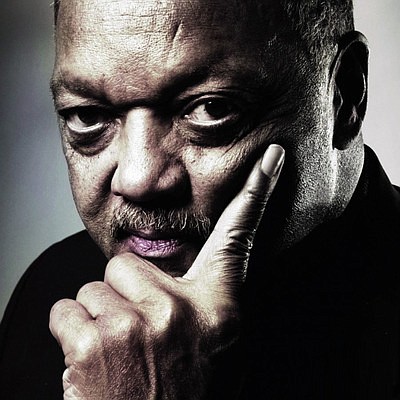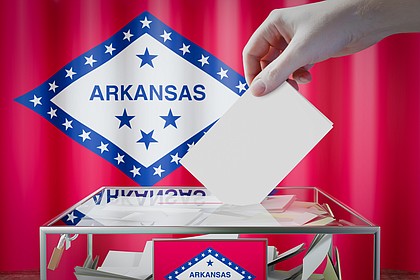Voter Suppression Alive and Well in Arkansas
Jesse Jackson | 5/27/2022, 7:20 a.m.
The Solid South used to be Democratic. Today, the Solid South is Republican. What happened?
President Lyndon B. Johnson signed the Public Accommodations Act on July 2, 1964. As a result, South Carolina's Dixiecrat segregationist senator, Strom Thurmond, switched parties in September and vowed to lead fellow Dixiecrats to the Republican Party.
Soon Thurmond, along with the head of the South Carolina Republican Party Harry Dent, convened a meeting in my hometown of Greenville, South Carolina, and invited Richard Nixon. Out of that meeting came Nixon's 1968 presidential campaign's Southern Strategy.
The rest is history as Republicans successfully used race and white evangelical Christians to gain Southern political dominance. The key to liberating the nation is liberating the South, and the key to liberating the South is the African American vote, increasingly in coalition with Hispanics, Asians, Native Americans (e.g., North Carolina), moderate and progressive whites.
One of the worst Southern states relative to voter suppression is Arkansas. Every former Confederate state has drawn congressional districts where a Black candidate has been elected and can be given an equal opportunity of being elected to Congress, except Arkansas. Arkansas is the only state in the country with a Black population above 10 percent that has never elected a Black representative to Congress.
This is no accident. Arkansas's congressional map has long been drawn to thwart the ability of Black voters to elect their candidate of choice. For example, a recent lawsuit stated that despite the fact that Jefferson and Pulaski Counties are geographically contiguous and have large numbers of Black voters, they have never been in the same congressional district, and neither county has ever been drawn together in a district that includes the eastern and southeastern portions of the state, where the state's most predominantly Black counties are located.
Here's what voter suppression looks like with some of the schemes. Arkansas is 27 percent Black and has four U.S. Representatives. Consistent with the 1965 Voting Rights Act, Arkansas should have one majority-minority district. However, the most recent redistricting map divided the Black community between three congressional districts. The final redistricting map was so racially skewed that Gov. Asa Hutchinson allowed it to become law without his signature.
But that's not the only way Arkansans have their votes and representation suppressed. According to the Election Administration And Voting Survey 2020 Comprehensive Report, Arkansas is dead last in voter registration (68 percent) and turnout (54 percent). The national average is 88.2 percent and 66.9 percent respectively.
However, Arkansas is first in rejecting absentee mail-in ballots (6.4 percent). Only three states have mail-in ballot rejection rates about 3 percent, Arkansas, New York and Oklahoma. Since 2020, many polling locations have been closed in both urban and rural areas of the state, making it more inconvenient for Arkansans to get to the polls, especially for seniors, those with disabilities, folks without reliable transportation, working Americans, and single parents without childcare.
For example, Pulaski County (i.e., Little Rock) went from 120 to 100 polling places and no longer offers the 12 early voting locations that stay open as vote centers on Election Day. Washington County reduced polling places from 58 to 41. Benton County went from 49 to 35.
Rural areas are no exception. Van Buren County went from 22 to 4 polling places and approximately 20 percent of their voters have to drive between 20 and 45 minutes one-way to vote. Yell, Lafayette and Lincoln counties went from 25 to 11, 12 to 3 and 11 to 3 polling places, respectively. Many rural Arkansans see their neighboring towns as rivals and don't feel comfortable traveling and having to vote in another town. Fewer polling places are often accompanied by fewer voting machines.
The vast majority of absentee/mail-in ballots rejected came from seniors, folks with disabilities, and active overseas military voters. Fifteen hundred mail-in ballots were rejected in Pulaski County alone in the 2020 General Election for simple human errors involving such things as missing ZIP codes, apartment numbers, the voter wrote today's date instead of their birth date, even though a photo included had the correct birthday, non-matching signatures because of a shaky signature due to age, and non-matching signatures as one person had injured their right hand in a car accident and now wrote left-handed. Ballots cast by military personnel were rejected because the digital signature was too pixelated and didn't match the signature on file. Strict voter ID schemes reduce Black voters. People don't vote because of voter suppression and a lack of candidate options.
This is the result of the damage done by the Shelby Supreme Court decision and emphasizes the need to pass the John Lewis Voting Rights Amendment Act that would restore pre-clearance to the 1965 Voting Rights Act. Without a federally protected right to vote states rights, voter suppression will dominate.
You can write to the Rev. Jesse Jackson in care of this newspaper or by email at jjackson@rainbowpush.org. Follow him on Twitter @RevJJackson.






